When it comes to your home’s comfort, your HVAC system is the unsung hero. It works year-round—keeping you cool during the blazing summer months and warm when winter nights drop below freezing. But like any machine, your HVAC system wears down with use. That’s where seasonal HVAC maintenance comes in.
Scheduling routine maintenance every spring and fall isn’t just about preventing breakdowns—it’s about protecting your investment, extending the system’s lifespan, and saving money in the long run. If you’re a homeowner looking for reliable care, exploring our Residential HVAC Services is the best place to start.
Why Seasonal Maintenance Matters
HVAC systems are built to last anywhere from 12 to 20 years, but reaching the higher end of that range depends on how well you take care of it. Neglecting maintenance is one of the top reasons systems fail earlier than expected.
Here’s why regular seasonal tune-ups make a difference:
- Prepares Your System for Heavy Use
- In spring, your air conditioner needs a full check-up before summer heat waves hit.
- In fall, your furnace or heating system needs to be tuned for the cold months ahead.
By catching issues early, you avoid strain when your system is working its hardest.
- In spring, your air conditioner needs a full check-up before summer heat waves hit.
- Prevents Costly Breakdowns
Most emergency repairs are caused by problems that could have been prevented with basic inspections—like dirty filters, refrigerant leaks, or worn-out parts. - Keeps Efficiency High
A poorly maintained HVAC system works harder to deliver the same results, which means higher utility bills. Maintenance ensures your system runs at its peak efficiency.
What Seasonal HVAC Maintenance Includes
Professional HVAC maintenance isn’t just a quick glance at your unit. A licensed technician—such as those from Call Gunny’s, trusted by homeowners across Las Vegas and Pahrump—follows a thorough checklist that covers both safety and performance. Depending on whether it’s spring or fall, this can include:
- Filter Replacement or Cleaning – Keeps airflow strong and improves indoor air quality.
- Checking Refrigerant Levels – Essential for cooling efficiency.
- Inspecting Electrical Components – Prevents fire hazards and ensures smooth operation.
- Lubricating Moving Parts – Reduces wear and extends motor life.
- Testing Thermostat Accuracy – Ensures your system isn’t overworking.
- Inspecting Ductwork – Prevents leaks that waste conditioned air.
- Cleaning Coils – Removes dirt that reduces heat exchange efficiency.
- Safety Checks for Gas Furnaces – Identifies potential carbon monoxide leaks.
This kind of preventive care is far cheaper than replacing a compressor, blower motor, or heat exchanger—all of which can run into the thousands.
How Maintenance Extends System Lifespan
Think of HVAC maintenance like servicing your car. If you never changed your oil or rotated your tires, your car wouldn’t last long. The same principle applies here.
- Reduces Wear and Tear: Lubrication and cleaning reduce unnecessary strain on components.
- Minimizes System Stress: Addressing small issues early prevents them from developing into major mechanical failures.
- Optimizes Performance Year After Year: A system that runs smoothly season after season doesn’t burn out prematurely.
Homeowners who invest in annual maintenance can add 3–5 years of life to their HVAC system, avoiding early replacement costs.
The Financial Benefits: Saving You Money
Many homeowners hesitate to schedule seasonal tune-ups because they see it as an extra cost. The truth? Maintenance pays for itself multiple times over.
- Lower Energy Bills
According to the U.S. Department of Energy, well-maintained HVAC systems use 10–15% less energy. That can translate to hundreds of dollars in annual savings. - Avoiding Emergency Repairs
Emergency calls can easily run $300–$700, and major part replacements cost thousands. Preventive maintenance dramatically reduces these risks. - Maximizing Equipment Lifespan
A full HVAC replacement can cost $6,000–$12,000 or more. Stretching your system’s life by even a few years delays that investment. - Better Indoor Air Quality
Clean filters and coils reduce dust, allergens, and pollutants—improving your family’s health and lowering potential medical costs.
When to Schedule Seasonal Maintenance
- Spring: Before you turn on the AC full-time. Ideally in March or April.
- Fall: Before you switch to heating daily. Ideally in September or October.
Scheduling during these transition seasons ensures your system is ready before demand spikes—and before HVAC companies get fully booked. You can learn more about how tune-ups are handled through our hvac maintenance checklist.
Why Professional Maintenance Beats DIY
While some tasks like replacing air filters can be done by homeowners, seasonal maintenance requires a licensed technician. They have the tools and training to spot issues you can’t see. For example:
- A refrigerant leak is invisible to the untrained eye but can cause your AC compressor to fail.
- A cracked heat exchanger in your furnace can leak carbon monoxide—an extremely dangerous issue.
Investing in professional care means peace of mind and a safer home.
The Bigger Picture: Comfort, Safety, and Value
Seasonal HVAC maintenance is more than just an optional service—it’s a strategy for home comfort, safety, and long-term financial savings.
- You’ll enjoy consistent heating and cooling.
- You’ll save money on utilities and avoid sudden breakdowns.
- You’ll extend the lifespan of your system, protecting a major home investment.
Final Takeaway
If you’ve ever dealt with a mid-summer AC breakdown or a furnace failure in the dead of winter, you know how stressful and costly it can be. Seasonal HVAC maintenance is the preventive step that saves you from those headaches.
It keeps your system running longer, reduces your bills, and protects your comfort. Whether you’re in Las Vegas, Pahrump, or nearby areas, Call Gunny’s is here to help with professional HVAC care designed to last.

